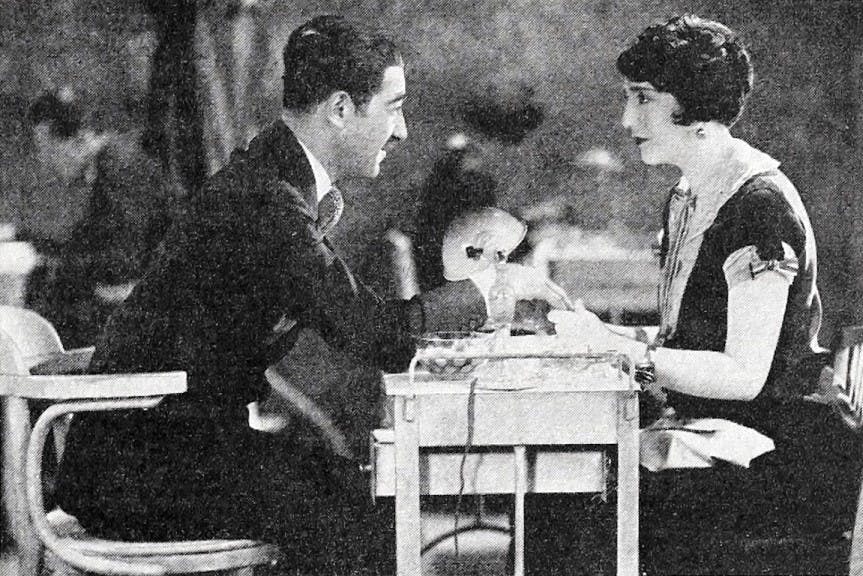Michael Arlen Among the Literary Set’s High and Mighty
Philip Ward does a dashing job of portraying Arlen as a phenomenon, not as a writer, who is, in the biographer’s estimation, historically important but not an enduring author.

‘Encounters with Michael Arlen’
By Philip Ward
Troubador Publishing, 272 pages
F. Scott Fitzgerald liked to talk about him. Ernest Hemingway hated hearing that “The Sun Also Rises” owed something to his work. Nancy Cunard and Rebecca West, writers of renown, were said to have been his lovers. Virginia Woolf called him an “Armenian monkey.” His novel, “The Green Hat” (1924), set in a London recovering from World War I, portrayed the upper classes nightclubbing, women exercising a new freedom, and an assortment of professionals who ministered to the ailments of the idle rich.
He was Michael Arlen (1895-1956), who claimed to know just about everyone in the world of the wealthy and the famous. Philip Ward’s book concentrates on D.H. Lawrence, Katherine Mansfield, Hemingway, Fitzgerald, Aldous Huxley, and West. Some of them, like Lawrence and Fitzgerald, thought Arlen had the potential to become a great writer; the rest had mixed to negative reactions to a flamboyant personality who seemed mainly concerned with cultivating cultural influencers.
Arlen, born Dikran Sarkis Kouyoumdjian at Ruse, Bulgaria, offended Woolf and her like as an obnoxious bounder — too eager to ingratiate himself with the high and mighty. He must be a Jew, they thought. He wasn’t, but as an outsider Arlen appealed to Lawrence, who thought of himself the same way, except Lawrence refused to write the popular novels that made Arlen a fortune on both sides of the Atlantic.
Mr. Ward does a dashing job of portraying Arlen as a phenomenon, not as a writer, who is, in the biographer’s estimation, historically important but not an enduring author. Even so, spending a little more time on “The Green Hat,” which was such a sensation, would have added some interest to what it was about the novel that made it so appealing and successful.
Mr. Ward set out to do a full biography but was dismayed at the paucity of Arlen correspondence, and worried that he would have to rely too much on the perceptions of others without getting Arlen’s side of the story. Arlen wrote autobiographical fiction, but that is rather a dodgy source to rely on, the biographer realizes. So using “Encounters” in the title seemed the safer bet.
Yet is it? Mr. Ward admires “The Quest for Corvo,” a classic that makes a virtue of necessity. A.J.A. Symons writes an entertaining and perceptive account of his efforts to learn the truth about his elusive subject, Frederick Rolfe, who created himself as Baron Corvo. Symons subtitles his book “An Experiment in Biography,” a sly gambit when the biographer doesn’t have all the goods — the sources — that would make a complete work possible.
Mr. Ward includes a chapter titled “How (Not) To Write Literary Biography.” Like many biographers, he is uneasy about his trade, about all he does not know, and seeks to allay what may also be the reader’s skepticism by admitting that biographers, in important respects, can’t know their subjects.
After more than four decades of writing biography, I find this apologetic mode, still favored by many biographers, tiresome. To say biographers don’t know everything is not saying very much. Do autobiographers, memoirists — you — know all? There is no 100 percent standard of trust or truth against which biography can be measured.
So when Mr. Ward worries that he can only repeat what others have said about Arlen, he has a point — but only a point, since who we are is not simply a matter of who we think we are but also what others say and observe about us. Otherwise, why write a book called “Encounters” in the first place?
Mr. Ward’s book lacks a certain momentum. He flags at the beginning that the book is piecework, drawn from many of his earlier publications, and so, he warns us, there will be repetition. Okay, but couldn’t Mr. Ward repeat himself with a difference, so that each time we hear that same story it sounds just a little different — which should be the point, shouldn’t it, in a book that worries about what version of someone’s life is supposed to be correct?
Mr. Rollyson is the author of “Amy Lowell Among Her Contemporaries” and “Rebecca West: A Modern Sibyl, and Lives of the Novelists.

